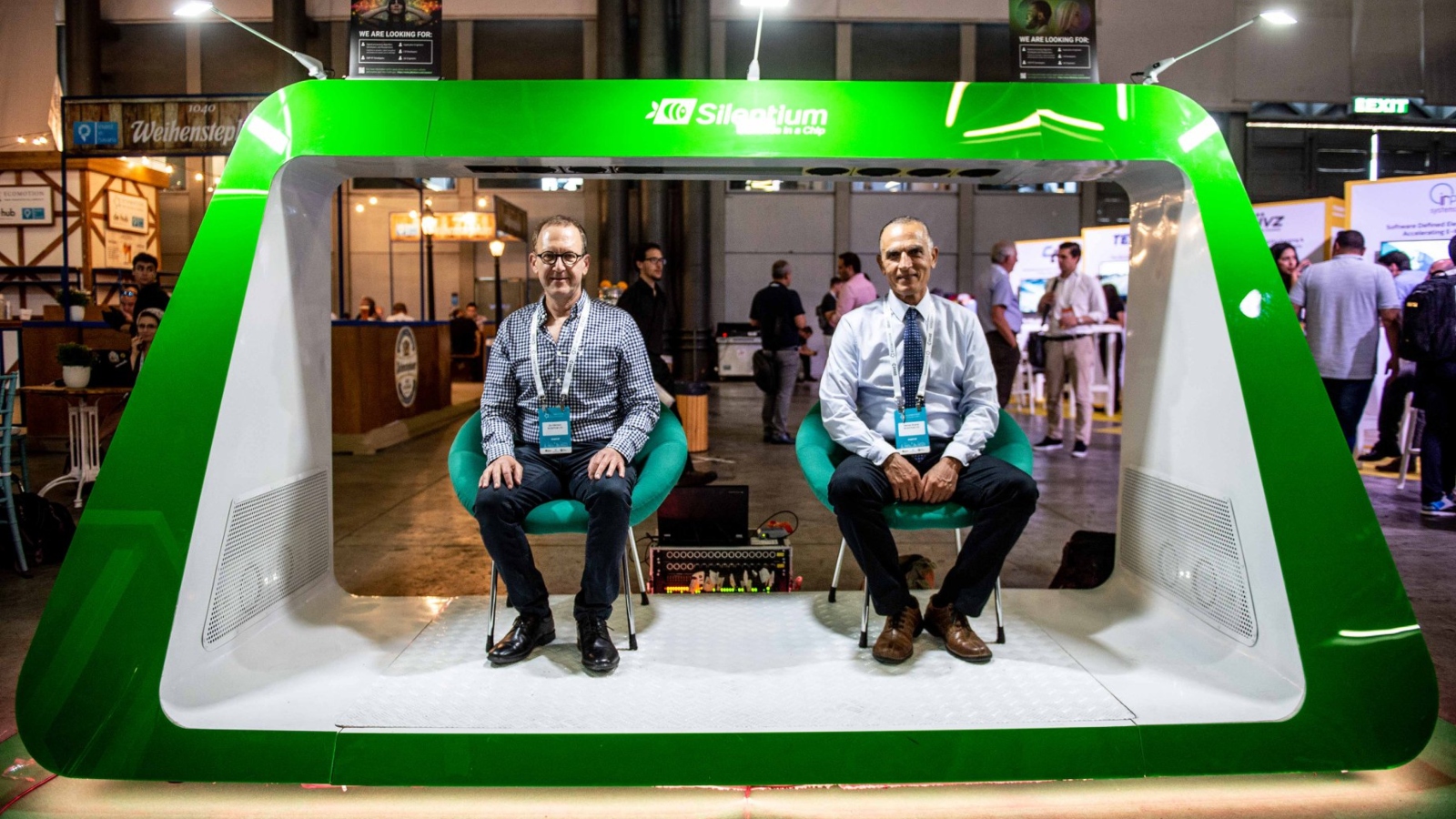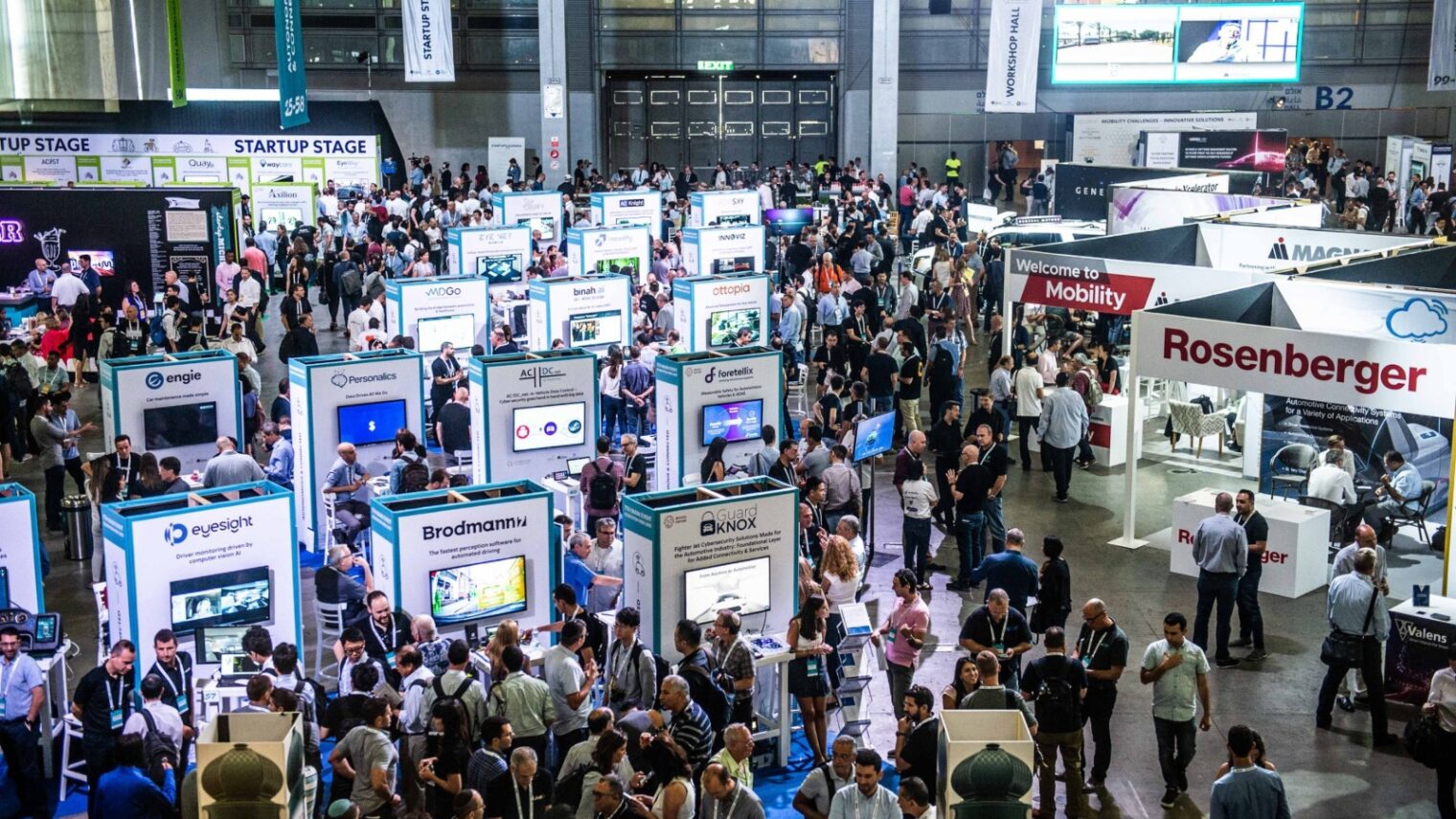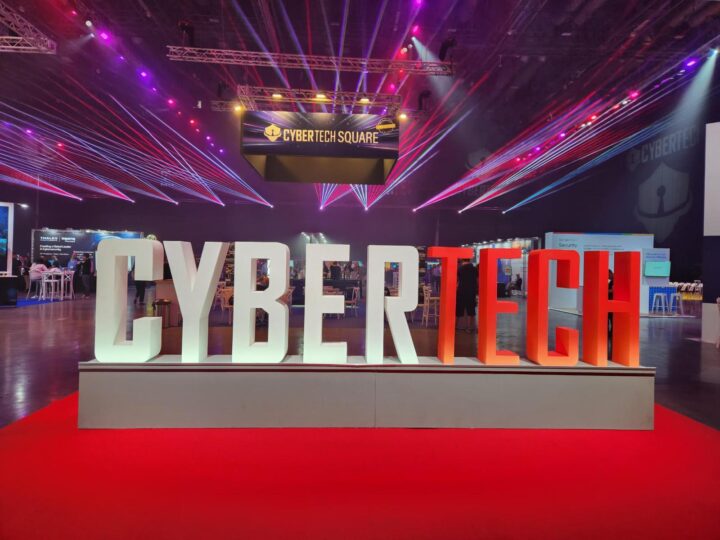More than 130 startups packed the Tel Aviv Exhibition center on June 11 for the main event of the seventh annual Ecomotion four-day conference. The vast majority of exhibitors are part of Israel’s burgeoning auto-tech industry, which is especially remarkable given that cars are not manufactured in Israel.
That didn’t stop Bill Ford, executive chairman of the company his great-grandfather Henry Ford started over 100 years ago, from praising Israeli ingenuity. The 62-year-old Ford was making his first visit to Israel.
“The lack of hierarchy here, I love that,” Ford said during his keynote speech. “It sparks innovation.” The automotive ecosystem in Israel, he added, is “amazing.”
Nearly 5,000 visitors from Israel and abroad attended this year’s Ecomotion.
You didn’t need to hear Ford to understand that Israel has become a world leader in everything from the sensors and cameras that power self-driving cars to the software that will find an open parking spot in a lot or on the street (no small feat in a perennially parked-up city like Tel Aviv).

Here are a few of the startups that impressed ISRAEL21c during a visit to Ecomotion this week.
Tel Aviv-based startup Arbe Robotics gave ISRAEL21c a test drive to show how its 4D radar will allow a self-driving car to navigate safely. Arbe’s system highlights stationary and moving objects in real time.
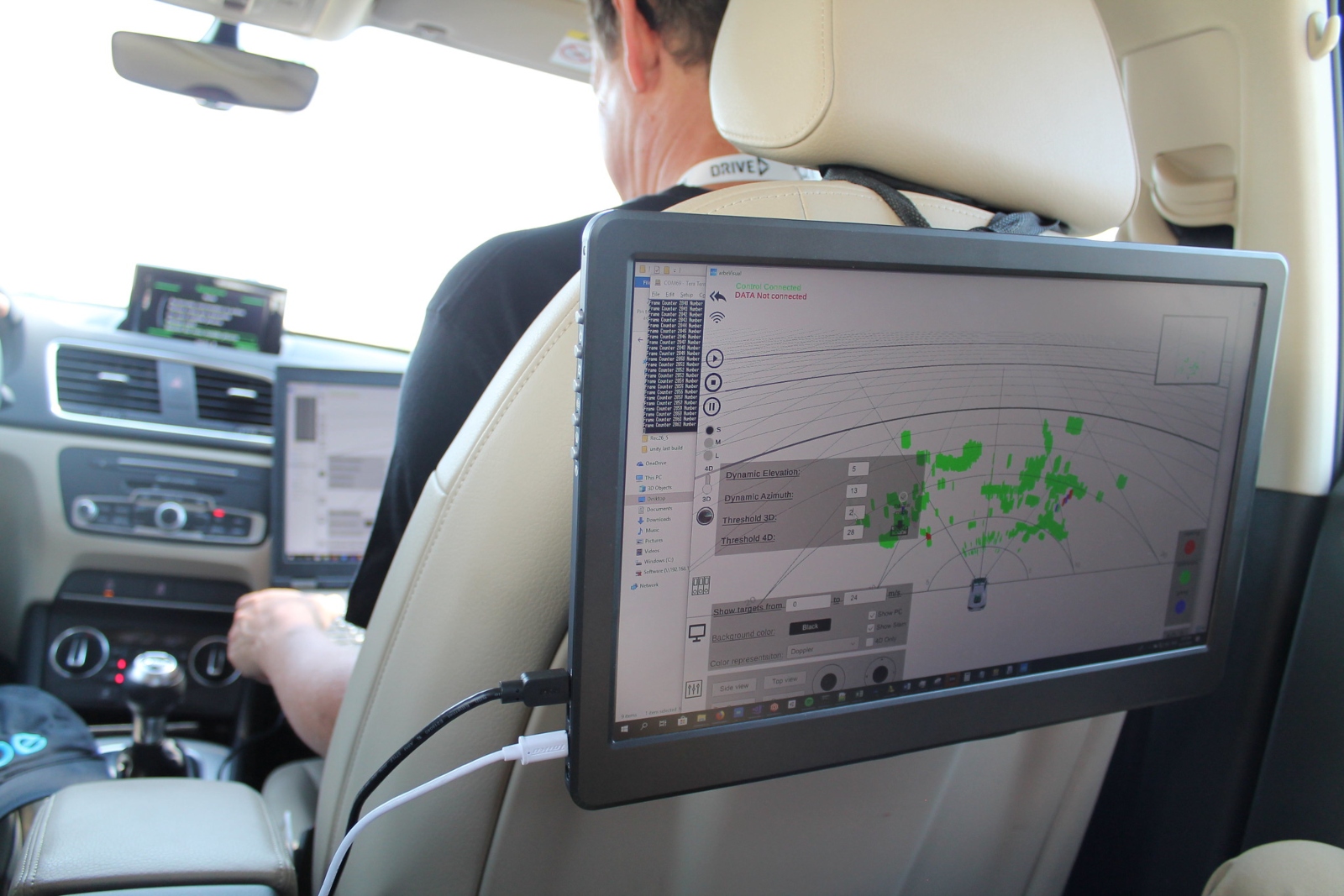
The screen showed what looked like a bunch of indistinguishable red, green and blue blobs, but then we’re not a computer with artificial intelligence. Arbe’s VP Marketing Shlomit Hacohen described the company’s technology as the kind of radar found on an F-16 fighter jet but with a much smaller footprint and considerably less expensive.
Nexar announced that its 1080p dashcam is now on sale on Amazon for $79.99. The small unit is always on, recording what’s happening around the vehicle. That makes it ideal for insurance claims when a car is involved in an accident. Footage can be accessed from the cloud; no fidgeting with SD data cards is required. Nexar’s dashcam video can also be shared with city planners to improve traffic and spot potholes in real time.

Guardian Optical Technologies (included in our top 10 list of Israeli autonomous driving technologies) has moved its in-car camera and motion-sensing smarts from the center to the front of the vehicle. That allows Guardian to monitor what the driver is doing – are your hands at 10 and 2 on the wheel? Are your eyelids getting droopy? The Guardian knows. The company’s tech also monitors what’s happening elsewhere in the car and determines weight optically without additional in-seat sensors.
Trailze has made an interesting pivot since ISRAEL21c included the company in our list of top Israeli travel technologies. CEO Ronen Bitan says that the company originally developed software to help hikers navigate the trail. But, surprisingly, bicycle and scooter riders were using the app in the city. So Trailze is now finding the fastest, safest and most scenic routes for urban riders. The company is looking to partner with shared biking and scooter companies like Bird and Lime. (Note to hikers: You can still use Trailze in the great outdoors.)
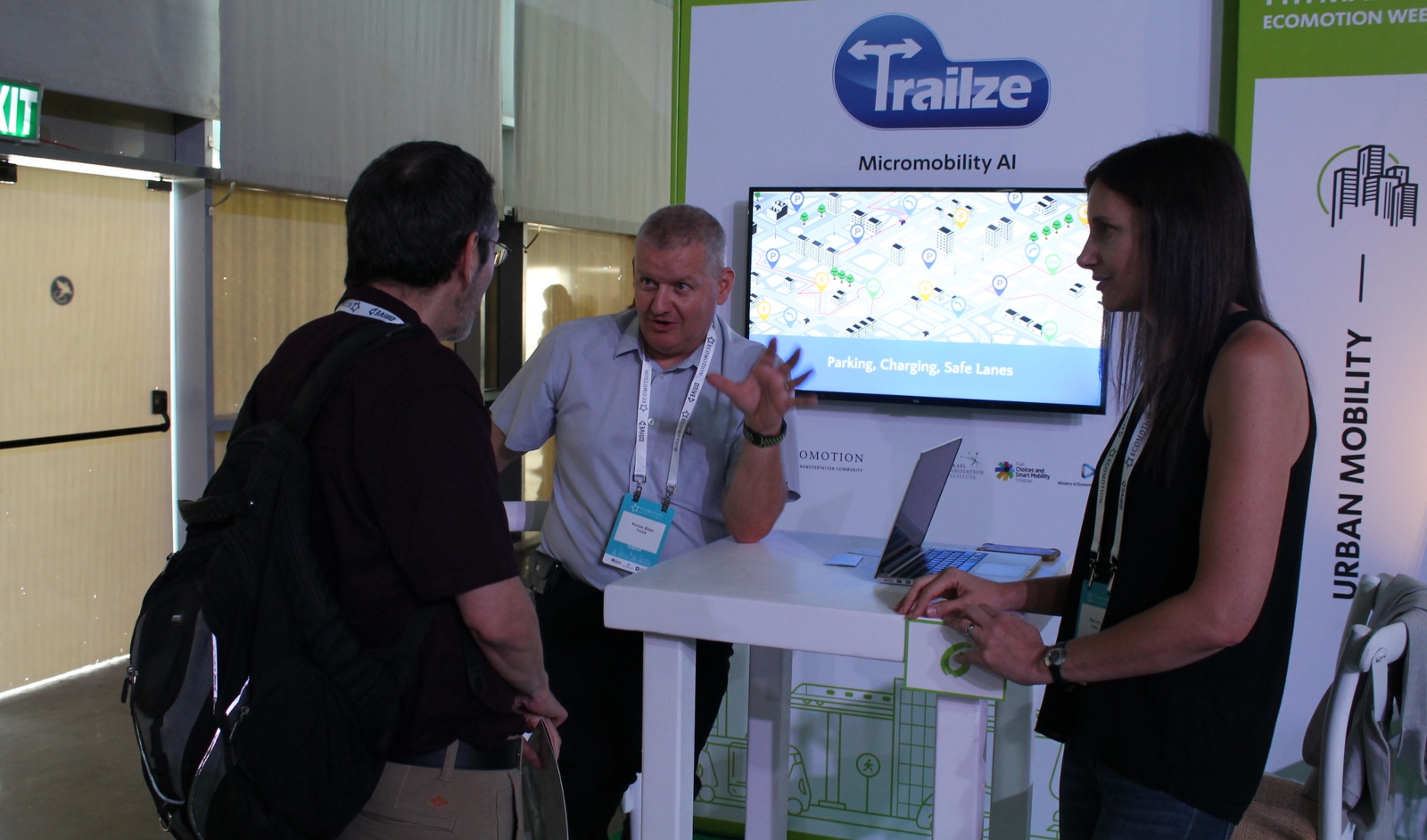
Companies like Hertz and Avis have a friend in Autofleet, an Israeli startup with software that allows fleet operators to bring their rental-car inventory into the ride-sharing economy. Autofleet’s software can tell fleet operators exactly where their vehicles are and when they will be available for the next driver – for example, an Uber or Lyft driver looking for a car to use for the day. Autofleet dubs its technology “vehicle-as-a-service.”
Russian technology leader Yandex came to Tel Aviv to show off its self-driving cars. Already operating in some Russian cities, Yandex wants to do the same for Israel. It received permission from the Israel Ministry of Transportation in December 2018 to begin Israeli road tests. The company aims to have 100 self-driving cars on Israeli highways by the end of 2019. A taxi-hailing service under the brand name Yango (using human drivers) is already operating in some Israeli cities. Yandex has R&D in Russia and Israel.
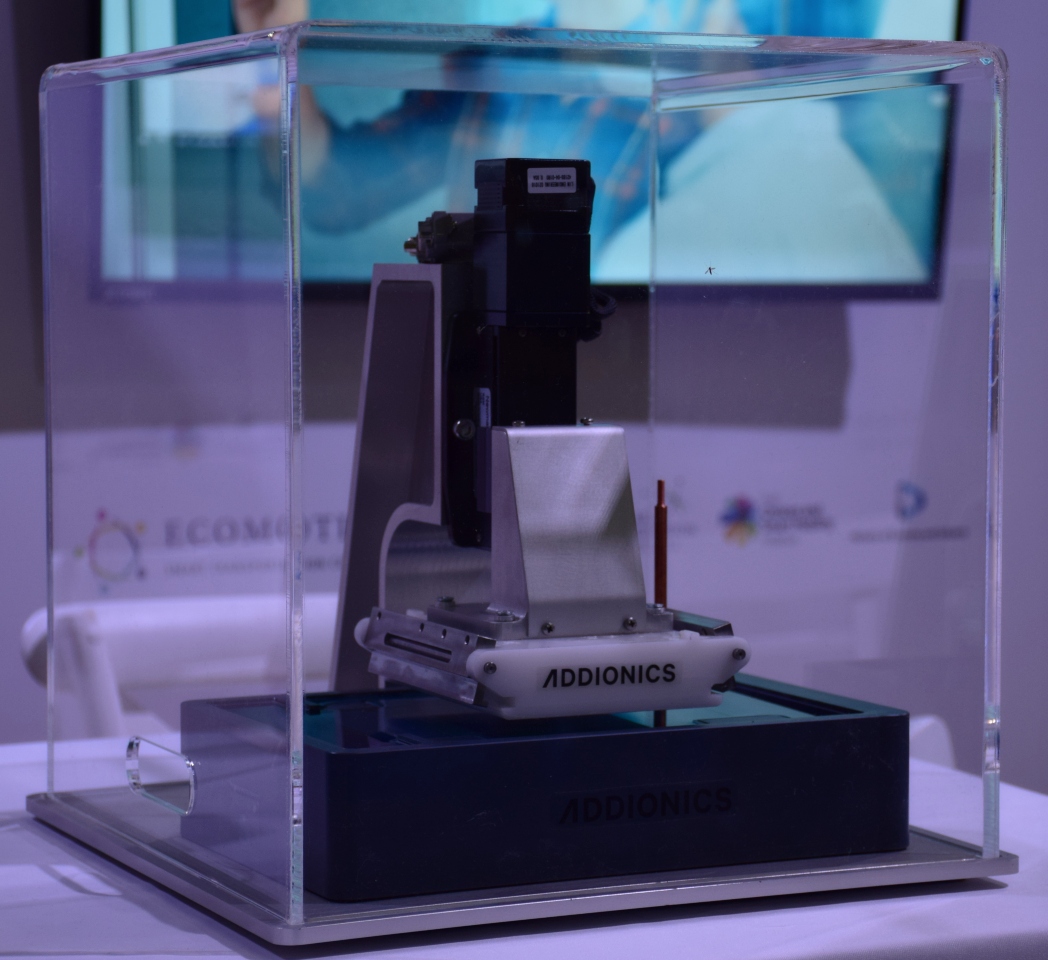
British-Israeli startup Addionics has developed a new kind of electric car battery that the company says gives twice the range with half the charging time. Addionics replaces the anodes and cathodes in existing batteries with structures designed from different metals to give it the boost. The rest of the battery stays the same, so battery production lines won’t have to change. “Addionics is betting on the race, not the horse,” says CEO Moshiel Biton. “All types of batteries will be able to benefit.”
StoreDot replaces a different part of the battery – the graphite – with its own mix of metalloids to speed up charging time. At Ecomotion, the company – together with investor and partner BP – gave the first-ever public demonstration of its five-minute battery charging technology.
CEO Doron Myersdorf removed an empty battery from an electric motorcycle, placed it into StoreDot’s charger and the audience watched the battery fill to capacity in five minutes and 10 seconds. The battery was returned to the motorcycle, a professional driver climbed on, flipped the switch and … nothing. Fortunately, StoreDot had a charged backup battery, and rider and cycle went on their way.
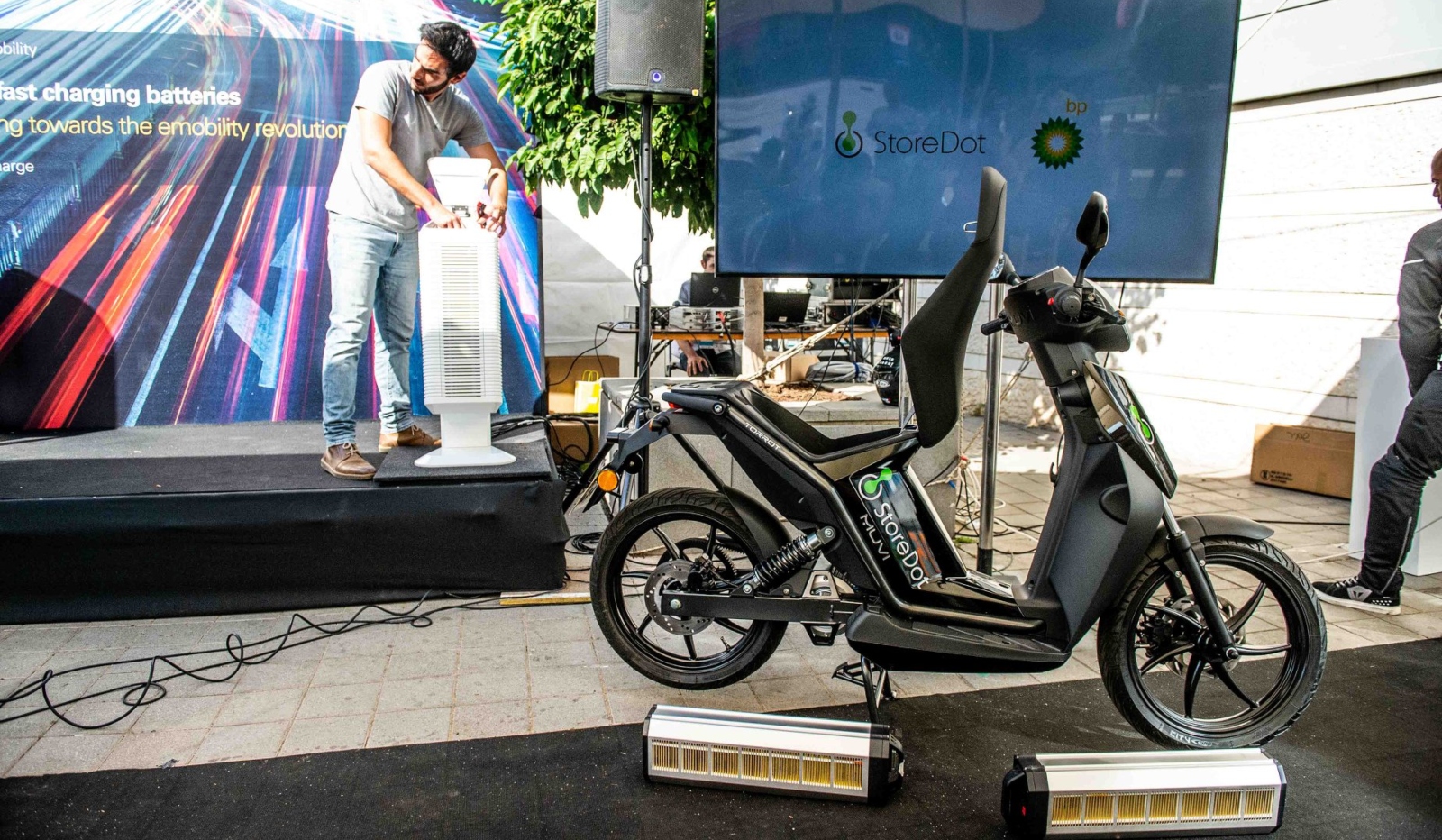
Getting where you need to go in a next-generation electric vehicle is great, but where do you park when you get there? Parknav uses artificial intelligence to predict with 85 percent accuracy where an open spot on the street is likely to be. Parknav knows local parking restrictions (i.e., no parking after 5pm) and has its own Waze-like navigation system. The company’s app is already working in 240 cities around the world.
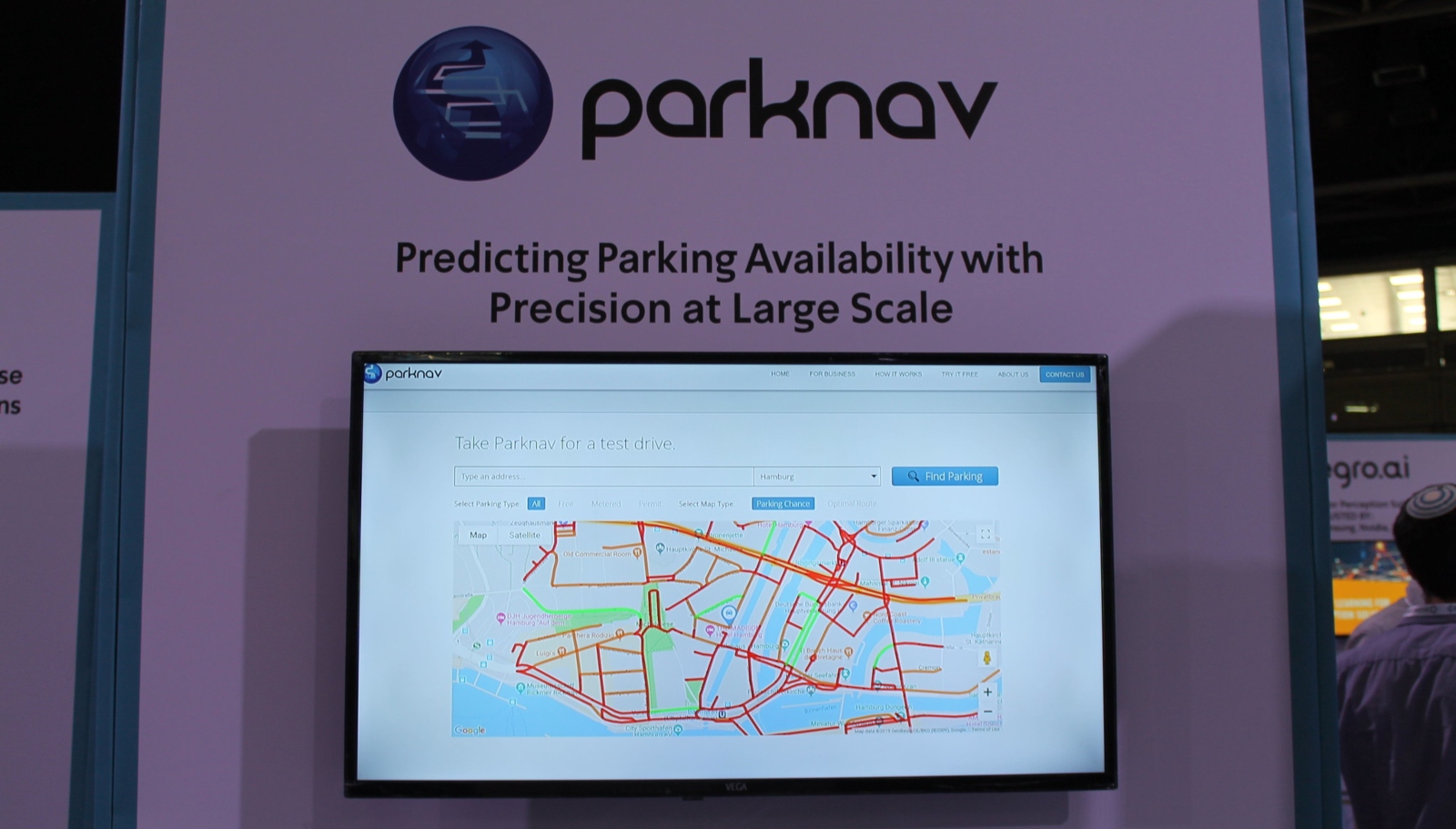
Parkam takes a different approach to helping drivers find parking: using existing CCTV cameras to pinpoint open spots. The demo we saw navigated us to several parking lots in Tel Aviv. Parkam is different than fellow Israeli navigation company Waze, which knows where the parking lots are but not if they have availability or where within the lot the open spots are. Ideally, Parkam would be integrated into Waze, Google Maps and other popular GPS systems (same goes for Parknav). In the meantime, you’ll have to switch maps when you get close to your destination. Parkam has signed a major deal in Australia to provide its smart parking solution in 29 lots with a total of 6,000 parking spaces.
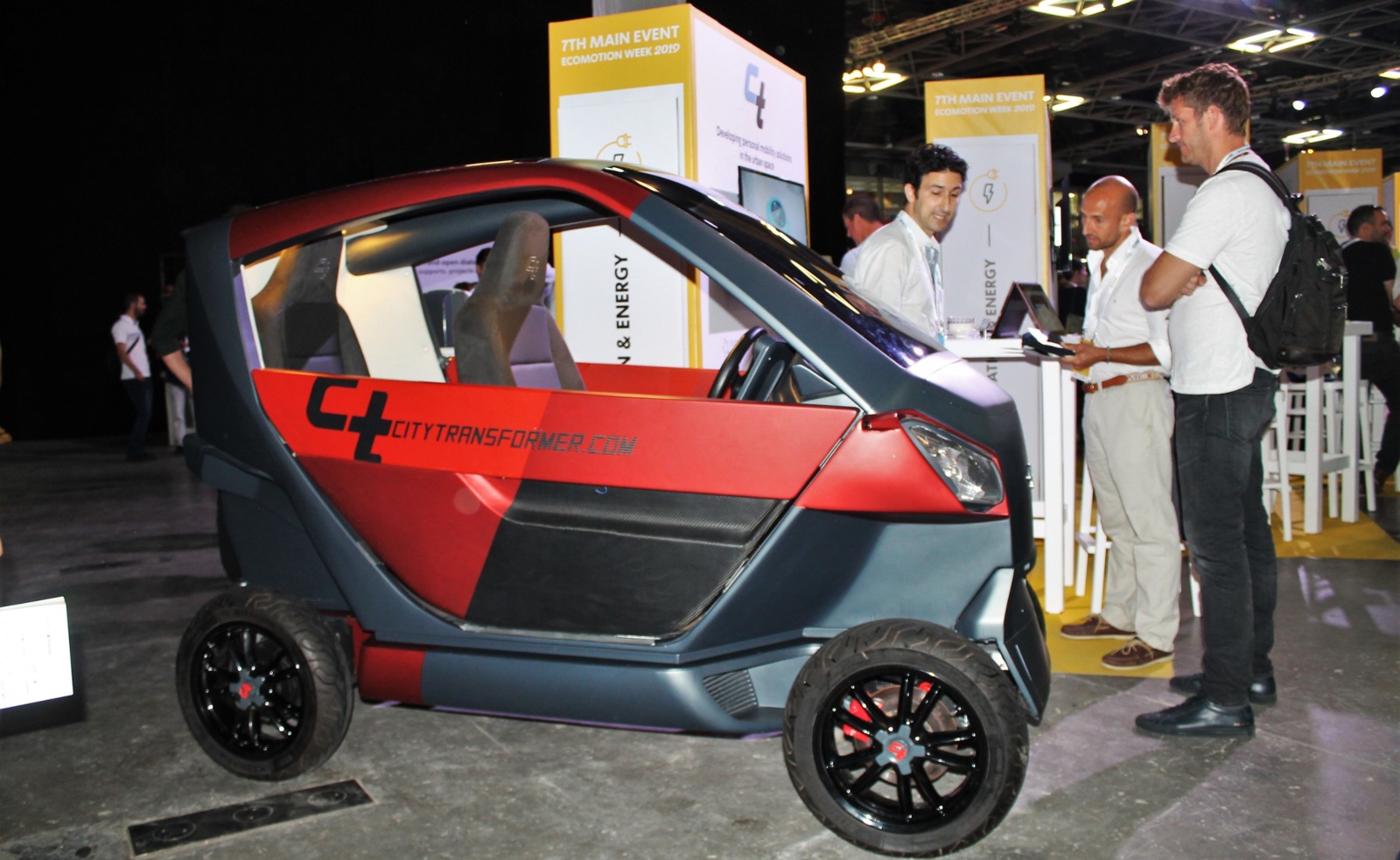
Even if you find an open parking spot, the question remains: will your car fit? It will if you’re driving an electric vehicle from City Transformer, which was demonstrating the company’s unique foldable vehicle at Ecomotion. When folded, City Transformer’s single-seater car uses only 25% of a regular car’s parking space. It can even slide into a motorcycle parking spot.

Ride sharing is about to get more profitable – for riders, that is. Enroute CTO Sagi Levanon told ISRAEL21c that 20% of online shopping in the UK is done while commuting. So why not bring that e-commerce functionality to the apps you use for your daily commute?
Enroute has partnered with Deutsche Bahn, Germany’s national rail company, and hopes that someday soon, when you order a car from Gett, Uber or Lyft, you’ll be able to shop from within those companies’ own mobility apps. And if you buy enough, perhaps you’ll get your next ride free.
Finally, how many times have you wanted to listen to a podcast in the front seat of your car while the kids in back understandably want something a bit more juvenile? Silentium calls its product “silence in a chip.”
Using active noise cancellation (ANC) software, Silentium can localize audio to specific seats so that everyone gets their favorite tunes. Silentium gets its name from its other major use: creating “Quiet Bubbles” that reduce the vehicle noise for drivers by some 90%. Silentium is also building its tech directly into home appliances; no more having to talk over the noise from the blender.
